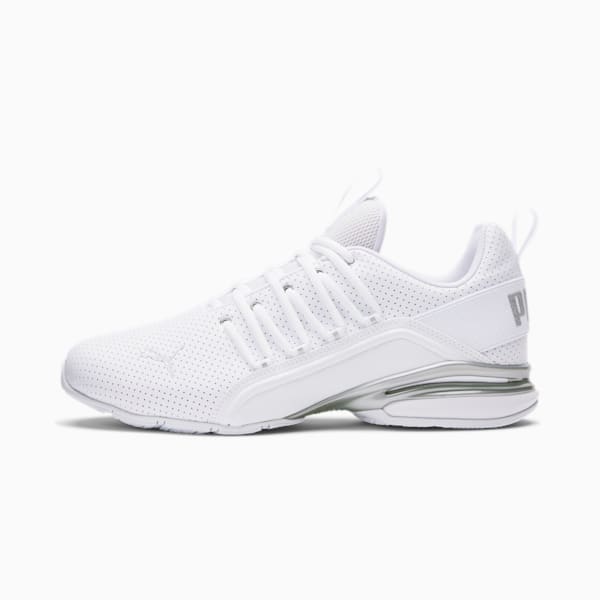
A bachelor's in exercise science will help you pursue a career that focuses on health and fitness. This degree will educate you about nutrition and exercise, and how to do physical activities safely for people with certain conditions. Students studying exercise science learn how to choose the right food, fluids, or supplements to fuel their bodies. This will help them achieve positive results.
Prerequisites
You should be aware that you need to have a bachelor's in exercise science if you want to pursue a career as a health care professional. This degree gives you the academic knowledge you need to get into any health-care profession. These include physical therapy and athletic training. The U.S. Bureau of Labor Statistics projects that 2.4 million jobs will be created in the healthcare industry by 2029. This growth trend is expected continue and will require qualified exercise science graduate.
A bachelor's degree in exercise science opens up many career opportunities. A graduate in exercise science can go on to pursue careers as health and fitness trainers, coaches, nutritionists, or program managers. These professionals might also work in rehabilitation facilities and medical offices. A bachelor's in exercise science is required to be able to work as a chiropractor, occupational therapist, or physical therapist.

Career prospects
Students who are pursuing a bachelor of exercise science may find rewarding jobs in the fitness and health industries. One of the key trends driving growth in the fitness industry is the growing awareness of health-related issues. The fitness industry generated more than $94 billion in revenue in 2018, and those who possess a thorough knowledge of exercise and fitness programs are well-positioned to benefit from this growth. If you have a passion to exercise, a bachelor's degree is possible. This will provide the education and training needed to advance your career or obtain certification.
The study of physical activity and the body under stress is at the heart of exercise science. This field can help prevent or slow down the development of fitness and health diseases. It can also improve performance and help people maintain their best fitness levels. The courses in exercise science include kinesiology and nutrition. The courses offered by exercise science programs include biology, anatomy, chemistry, and physiology.
Online programs
A successful bachelor's degree can be obtained online depending on what your educational goals are. The majority of programs require 120 credits and can take up to four years to complete. You have the option to choose asynchronous classes or an accelerated course depending on which program you are interested in. The future is bright for many jobs in exercise science, with 13% growth for exercise physiologists and 39% growth for fitness trainers and instructors.
An exercise science degree is not as expensive as it seems, especially when you consider rising tuition costs. There are many scholarships, grants, assistantships that can help you save money while at school. If you do not qualify for grants or other financial aid, you can also apply for student loans to cover the remaining cost of your degree. There are many grant types, from those offered by colleges to professional associations to government. Grants do NOT have to repay and can be used to fund your education. You can read more about scholarships and grant opportunities in our guide to online programs.

Cost
It's a great way to get a job in the health- and fitness industry by earning a bachelors degree in exercise science. This degree can be earned online but it's better to get it on a campus close by for lectures, and other requirements. Many programs also offer local internship opportunities for students who live nearby. Be sure to choose an accredited school, however, as this ensures that the postsecondary institution's quality and rigor is high. Additionally, unaccredited schools may prevent you receiving financial aid or transferring your credits.
Online programs are available from the University of Kansas' Bachelor of Applied Science Program in Exercise Science. The course focuses on human movement as well as functional changes in the body. This program is a great choice for students in pre-health or pre-med who want to get into the fitness industry. It is taught by experienced faculty and emphasizes hands-on learning. The application fee is $55, and applicants must fulfill the program's admission requirements.
FAQ
Are there any exercises that I shouldn't do or should I?
Before you begin any new exercise regimen, make sure to check with your doctor. There are some people who have medical conditions or injuries that make it difficult to exercise. You may also need special equipment or training for certain activities. Swimming requires you to have a swimsuit and access to the pool.
Is it safe to exercise when the temperature is below freezing?
It's a good idea to exercise outside as often as possible. You can exercise outside regardless of the weather. The factors that determine whether it's safe to exercise outdoors include wind speed, humidity, rain, visibility, and even visibility. If you exercise outdoors in inclement weather, wear layers of clothing that protect you from wind chill and rain.
Is it necessary to eat before exercising?
No. No. It is possible to snack on yogurt or fruit if you are hungry after your workout.
Do I need to warm up before exercising?
Warming up before a sport can help reduce muscle soreness and increase performance. You can use several methods to warm up: walking, running, jumping rope, stretching, and cycling are just a few examples. Start slowly and gradually increase your pace and intensity.
How nutrition and exercise can make your life better.
Exercise is good for your health, weight loss, muscle growth, stress reduction, and overall well-being. Nutrition is essential for energy, sleep and mood as well as overall health. Eat less meat, limit alcohol consumption, avoid smoking, exercise regularly, and reduce your risk of dying.
How do I get started with Fitness?
Start small. Begin by taking 10 minutes each morning to walk around the block. This will show you how to move and give your muscles the time to adjust. Once you are comfortable with this form of exercise and have gained some experience, you can start adding steps to your daily workout routine.
What is the importance and benefits of good nutrition for your health?
We need to eat well for our health and wellbeing. Healthy eating includes whole grains, fruits, vegetables, lean protein, dairy, and other healthy foods. Eating nutritious foods helps us stay fit and active, which leads to better overall health.
Statistics
- One study showed that adults who watch more than 4 hours of television daily had an 80% higher risk of death from cardiovascular disease. (heart.org)
- Physical activity confers the following maternal and fetal health benefits: a decreased risk of pre-eclampsia, gestational hypertension, gestational diabetes (for example, 30% reduction in risk) (who.int)
- Globally, 81% of adolescents aged 11-17 years were insufficiently physically active in 2016. (who.int)
- An estimated 110,000 deaths per year could be prevented (cdc.gov)
External Links
How To
How To Stay Fit At 40
This article is for those who want their body to be strong and healthy even after they turn 40. This article provides basic information on how to eat well, exercise, sleep well, and take care your mental health. This article gives tips on how to live longer and healthier.
-
Eat Right - The first thing you should do when trying to stay fit is to ensure you're eating the right foods. You should steer clear of processed food products, and eat whole grains and fruits, vegetables, lean proteins, fish, eggs, nuts, seeds, beans and legumes. You can always add more to your diet if you don't enjoy what you eat. This will not help you lose weight. Try adding small amounts of different foods to your daily meal. You might try turkey if you don't eat chicken breast often. Rice is another option if you enjoy pasta. These foods should be a part of your daily life.
-
Exercise - When exercising, make sure you work out at least three times a week. Include cardio activities like running, swimming, biking and dancing. Make sure to get enough rest. Aim to sleep 8 hours per night. Make sure to drink lots of water throughout your day. Drink 2 liters (0.5 gallon) of water each day.
-
Sleep well - A good night's sleep is key to staying healthy. The National Sleep Foundation says adults need at least 7-8 hours of sleep each night to maintain their physical and emotional health. But most people sleep less than 6 hours per night. Changes in your sleeping habits can make you more tired. Adjusting your schedule to go to bed earlier and waking up later will allow you to catch up on extra sleep. Additionally, try turning off your phone before going to bed so that you can wind down and relax. Avoid caffeine after noon as it can cause insomnia.
-
Take Care of Your Mental Health. Taking care of yourself is key to maintaining a healthy body. Stress can lead people to have poor eating habits or make poor lifestyle choices. You should practice stress management techniques, such as yoga, meditation, breathing exercises, or relaxation. Spend one hour doing something you enjoy. You can do this by going for a walk or reading, playing sports, listening to music, or watching TV.
These four simple steps will help you live a longer, healthier life. These four steps can help you achieve your fitness and health goals.